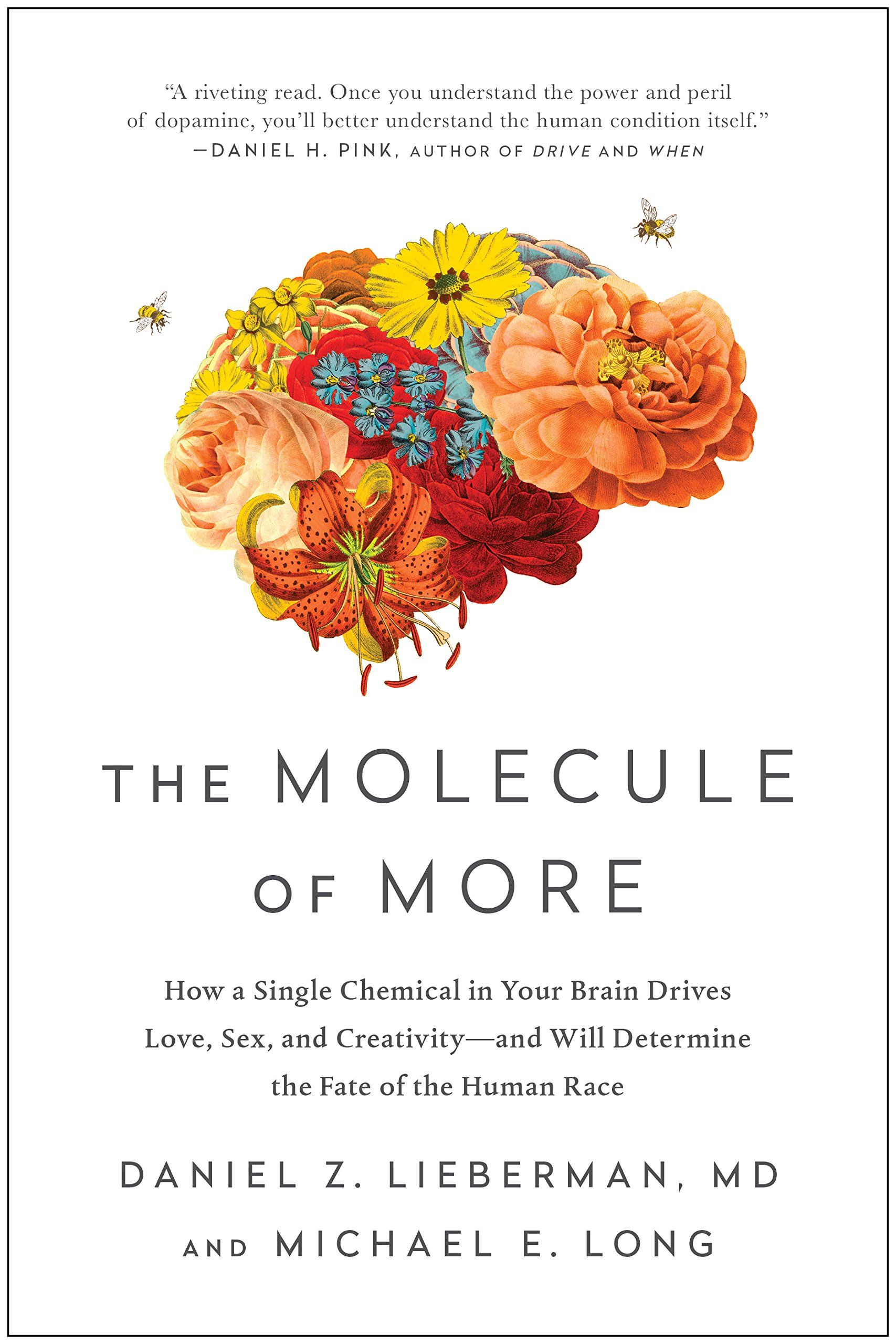The Molecule of More by Daniel Lieberman

The Molecule of More by Daniel Lieberman
A powerful framework for viewing human behaviour.
My Notes
Dopamine was discovered in the brain in 1957 by Kathleen Montagu.
Dopamine's moto is more.
One of the instigators of love, the source of the spark of all that follows.
But in order for love to last, the chemical symphony has to change from dopamine to H&N
Early passionate love only lasts about 12-18 months --> then a transition to H&N companionate love (where dopamine is supressed)
Dopamine isn't the pleasure molecule, it's the anticipation molecule. Our must brains transition from future oriented dopamine to future oriented Here and Now chemicals - serotonin, oxytocin, endorphins, endocannabinoids
Dopamine triggers energy enthusiasm and hope. Some people spend their entire life pursuing this feeling of anticipation, that life is about to get better. D turns on the imagination of a rosy future. But what happens when the dinner is in your mouth, when your lover is in your arms? D is shut down. D circuits don't process experiences of the real world, only imaginary future possibilities. For many people it's a let down. They're so attached to dopaminergic stimulation that they flee the present and take refuge in the comfort of their own imagination. They think, "What will I do tomorrow?" as they chew their food, oblivious to the joys of the meal.
The future isn't real. They're just idealized possibilities in our mind. The present is real. Is experienced, not imagined.
Transition from excitement to enjoyment can be challenging sometimes. Ex. Buyers remorse - if you buy that expensive car your life will be changed. The desire circuit is just a salesman. Once
Failure of H&N experience to compensate for the dopaminergic arousal.
Liking and wanting are two different systems. We often don't like the things we want. Disconnect is biggest when people become addicts
Why Geniuses Are Jerks
Sometimes having high levels of D is a liability. It suppresses H&N functioning, brilliant people are often poor at human relationships. Need H&N empathy to understand what's going on in other people's minds.
“My passionate sense of social justice and social responsibility has always contrasted oddly with my pronounced lack of need for direct contact with other human beings.” -Albert Einstein
I love humanity, but I hate humans - Albert Einstein
Einstein struggled with relationships. Cheated often due to dopaminergic mind. Same dopamine that drove him to discovery relativity also drove him to relationship to relationship.
Creative genius: whether a painter, poet or physicist, that has so much trouble with human relationships they might appear to be autistic (autism is also associated with high levels of D coincidently)
So focussed on internal world of ideas, neglects real world of here and now.
Overly focussed on maximize future resources at the expense of appreciating the here and now.
The Pleasure Seeker - always wants more, never enough, as soon as it comes is looking for something else.
Detached Planner - like the Pleasure Seeker, also has a need for more but take a long term view chasing more abstract forms of gratification like honour, wealth and power.
Benevolent Misanthropes - passionate about people but little patience for them as individuals
Highly dopaminergic people prefer abstract thinking to sensory experience
I arise in the morning torn between a desire to improve the world and a desire to enjoy the world. This makes it hard to plan the day. —E. B. White